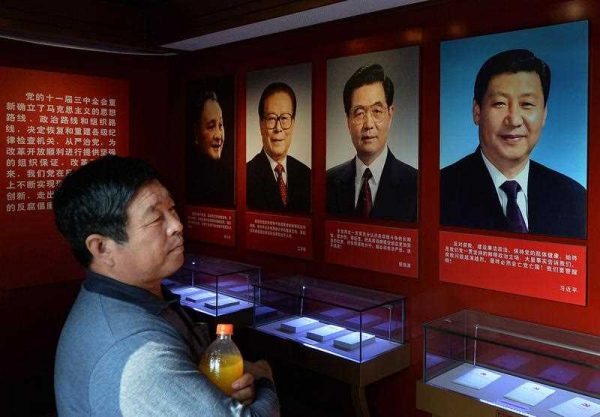Despite its remarkable recent achievements, China’s economic, social and political problems are many and growing. It is possible that Beijing’s performance may now have peaked. Its accumulating problems and failure to develop a political system able to adequately deal with them may soon be seen — both inside and outside the country — to constrict its further progress and the deployment of its impressive assets.
Many a Chinese leader must think it a cruel twist of fate that a regime that has done so much to improve the living standards of hundreds of millions of people should be so obviously frightened about its continuing viability. Yet the Chinese Communist Party can be seen as a victim of its own successes as well as its apparent failures. No country can modernise as rapidly as China without suffering the enormous consequences of immense social change.
Rather than basking in the gratitude of a contented nation, Chinese President Xi Jinping and his colleagues have revealed themselves to all the world as cats on a hot tin roof. Their pomp and propaganda at home and abroad cannot conceal their fear of overthrow or disintegration. Their attempt to limit the impact of Western values, ideas, institutions and practices — embodied in the current draft legislation to restrict foreign cooperation from international NGOs in education, civic affairs and politics — is a deeply embarrassing and shameful public confession of the fragility of their system.
Having benefited from several decades of the ‘open policy’ initiated by Deng Xiaoping, his fear-mongering successors now want to cut off the ‘ideological infiltration’ they believe threatens their ‘democratic dictatorship’. If successful, this new policy will inhibit China’s ability to respond to domestic and global demands. As my colleague Ira Belkin recently noted: ‘It’s a bad 1960s policy for a 2015 challenge’.
Because of the system’s lack of transparency, Xi knows far better than we do the vulnerabilities underlying China’s formidable achievements. Staggering pollution, massive corruption, labour unrest, unfair land transfers, growing income inequality, arbitrary bureaucracy, ethnic tensions and invidious social discriminations, increasing persecution of human rights lawyers and civil society reformers, a Party-dominated judiciary, and ever greater curbs on social gatherings, journalism, the internet and social media are fuelling discontent and resentment — which a now significantly troubled economy and an anticipated stock market crash can ignite. As Chairman Mao admonished, and the 4 June 1989 Tiananmen tragedy demonstrated, ‘a single spark can start a prairie fire’.
Yet repression offers no long-run solution and cannot last forever. In the mid-1980s, Taiwan’s then president Chiang Ching-kuo, although heir to his father Chiang Kai-shek’s Leninist party dictatorship, recognised that secure progress requires gradual political reform and launched the process that transformed Taiwan into a vibrant democracy. China needs similar enlightened leadership today.
Understandably, China’s Communist elite is far from united in how to confront its many challenges. Despite General Secretary Xi’s attempt to impose monolithic controls on the Party, the first three years of his rule have exposed major cracks in the leadership. The life sentence meted out behind closed doors in early June to China’s formerly feared national security chief, Zhou Yongkang, is only the most recent evidence of a continuing power struggle and indicates how the Party’s ‘socialist rule of law with Chinese characteristics’ operates.
The Chinese people, who have generally supported Xi’s persisting campaign to reduce official corruption, are waiting to see whether he is willing to risk further elite dissension by pursuing corrupt leaders who, unlike Zhou, have not been his political rivals. At the same time, many Chinese are hoping that Xi will moderate his repressive course and gradually lead them toward reforms that will give full play to their prodigious capacities.
Although I am generally an optimist, China’s current prospects for desirable reforms nevertheless remind me of Alexander Pope’s famous couplet: ‘Hope springs eternal in the human breast. Man never is, but always to be, blest’.
Jerome A. Cohen is a professor of law at New York University. He is co-director of its US–Asia Law Institute and adjunct senior fellow at the Council on Foreign Relations.
This essay is based on his 17 June testimony before the Subcommittee on Asia and the Pacific of the Committee on Foreign Affairs of the US House of Representatives.


While China has many and serious problems and some of the author’s exposition is correct, the overall assessment by the author is not without its own problem. To me, it is no surprise the author is a lawyer in the USA: the analysis is like black and white.